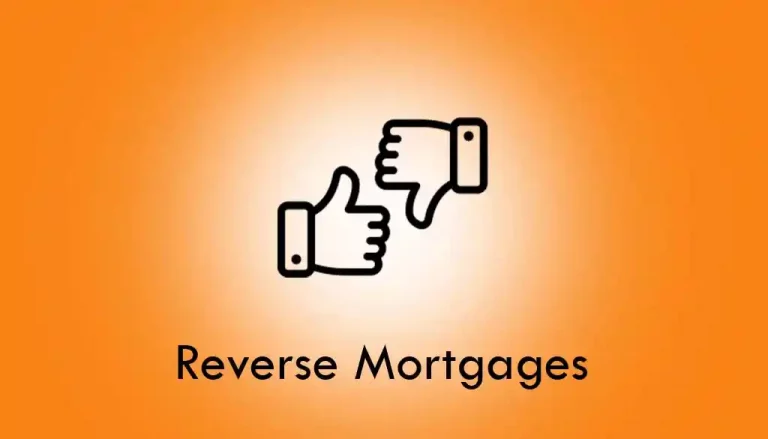You’re considering a reverse mortgage to supplement your retirement income. That’s a big decision, and before you make up your mind, you need to understand the pros and cons of reverse mortgages.
In this article, we’ll explore the good and the bad of reverse mortgages so you can make an informed decision.
What is a reverse mortgage?
A reverse mortgage is a loan that allows you to borrow against the equity in your home. The loan is paid back when you die, sell the home, or move out.
So what are the pros and cons of reverse mortgages? On the pro side, they can give you access to extra cash that can help you stay in your home and live comfortably in retirement. On the con side, there’s the risk that you could lose your home if you don’t keep up with the payments.
There’s also the fact that reverse mortgages can be complicated, so it’s important to do your research and consult with a financial advisor before you decide if one is right for you.
What are the pros of a reverse mortgage?
A reverse mortgage can provide a lot of benefits for seniors. Here are some of the pros:
- A reverse mortgage can help you stay in your home.
- A reverse mortgage can provide you with extra income each month.
- A reverse mortgage can give you access to cash advances.
- A reverse mortgage can increase your monthly Social Security payments.
- A reverse mortgage can give you a line of credit.
What are the cons of a reverse mortgage?
Reverse mortgages definitely have their pros, but they also come with a few cons. So, before you decide if this is the right option for you, it’s important to understand what those cons are.
First of all, reverse mortgages can be costly. There are fees associated with getting one, and you’ll also have to pay interest on the loan. Plus, the amount you’re able to borrow will decrease over time, since the loan is paid back with interest.
Another thing to consider is that reverse mortgages can affect your eligibility for government assistance programs down the road. If you take out a reverse mortgage and then need to go on Medicaid or Social Security, you could be in for a nasty surprise.
And finally, reverse mortgages can be risky. If you decide to sell your home after getting a reverse mortgage, the loan needs to be repaid in full. Otherwise, the lender can take your home away from you.
Suggest: #5 best debt consolidation loans for bad credit
How does a reverse mortgage work?
So you’re thinking of getting a reverse mortgage? Here’s a rundown of how they work.
First, you need to be at least 62 years old. The property you’re using as security must be your primary residence, and you can’t be behind on your mortgage payments.
The loan amount will be based on the value of your home, and you’ll continue to own the property. The lender will hold a lien against the property until the loan is repaid.
You can choose to receive the money in a lump sum, in monthly payments, or as a line of credit. And you don’t have to pay back the loan until you die, sell the property, or move out permanently.
There are definitely pros and cons of reverse mortgages to consider before deciding if it is right for you.
Who is eligible for a reverse mortgage?
Who is eligible for a reverse mortgage? The answer is pretty simple—anyone over the age of 62 can apply. Keep in mind that there are certain qualifications you need to meet, like owning your home outright or having a low mortgage balance.
Reverse mortgages are a great way for retirees to access the equity they’ve built up in their homes over the years. And they’re becoming increasingly popular, as more and more people are looking for ways to supplement their income in retirement.
But it aren’t right for everyone. So it’s important to weigh the pros and cons of reverse mortgages before you make a decision.
Suggest: Accountant vs financial advisor
How to get a reverse mortgage
So, you’re interested in getting a reverse mortgage? That’s great! But before you decide, it’s important to know the pros and cons of reverse mortgage.
Here are the basics: a reverse mortgage allows you to borrow against the equity in your home, and the loan doesn’t have to be repaid until you die, sell your home, or move out. You can use the money for anything you want, and you still maintain ownership of your home.
Sounds pretty good so far, right? But there are a few things to keep in mind. First of all, reverse mortgages can be expensive, so make sure you compare interest rates from different lenders.
Also, the amount you can borrow decreases as time goes on, so it’s important to plan ahead. Finally, if you decide to sell your home after getting a reverse mortgage, the lender will be repaid first, and you may have to leave your home.
So what do you think? Are reverse mortgages right for you?
Conclusion: Pros and cons of reverse mortgages
A reverse mortgage can be a great way to secure your financial future and unlock the value of your home. However, it’s important to understand the pros and cons of reverse mortgages before you make a decision.
In particular, you’ll want to weigh the costs and benefits of a reverse mortgage against your other retirement options. And remember, as with any financial decision, it’s important to consult with a qualified financial advisor before making a final decision.
